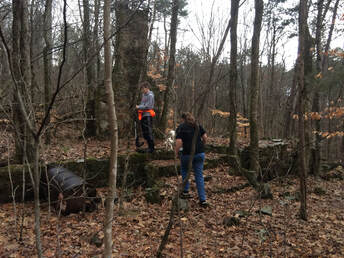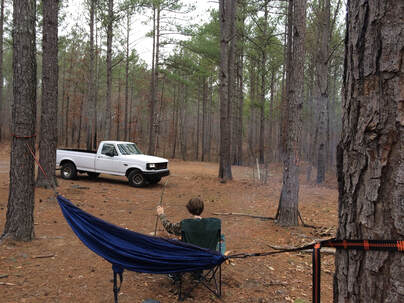 Imagine finding yourself lost deep in the woods, far away from any sign of civilization. Panic may ensue, but it is crucial to keep calm and focus on survival. The ability to navigate and endure the challenges of the wilderness is essential in such a situation. Here are some key tips to help you survive in the woods. Have a pack that is ready to take when you take any hiking trip with some essentials - fire starters, compass, tablets to purify water, a whistle and a Buck knife. Get my favorite Buck knife Here. First and foremost, it is essential to maintain a positive mindset. Staying calm and collected will allow you to think clearly and make informed decisions. Panic can cloud your judgment, leading to potentially dangerous mistakes. Remember, survival is all about adapting and utilizing the resources available to you. One of the most critical aspects of wilderness survival is understanding navigation. Without proper direction, you may find yourself going in circles, wasting valuable energy and resources. If you have a compass or map, use them to identify your location and head towards a known landmark, like a river or a mountain ridge. Additionally, observing the position of the sun or stars can help you determine direction during the day or night. While navigating, it is crucial to keep track of your surroundings. Familiarize yourself with natural landmarks, such as distinctive trees, large boulders, or unique rock formations. These can serve as reliable points of reference, aiding in your journey and helping you avoid backtracking. One of the most basic needs in any survival situation is access to clean water. The importance of staying hydrated cannot be overstated. Look for natural water sources such as rivers, streams, or springs. Consume water only after filtering it through clothing or a makeshift filter to remove impurities and minimize the risk of waterborne illnesses. Hopefully you have your filter with you in your pack, here is one Water Filter if you want one for your pack. If necessary, you can also collect rainwater using improvised containers like leaves or bark. Food is another crucial aspect of wilderness survival. While it is best to have an understanding of edible plants and hunting techniques in advance, do not consume anything unless you can identify it with certainty. In the absence of such knowledge, focus on foraging for nuts, berries, or fruits that are visibly safe for consumption. Shelter is paramount to keep you protected from the elements and predators. Look for natural features such as caves or sturdy trees. If necessary, construct a simple lean-to using fallen branches and foliage as insulation. It will provide temporary protection from the rain, wind, or harsh sunlight. Lastly, signaling for help is vital if you find yourself lost for an extended period. Use three loud whistle blasts, shouts, or a brightly colored cloth to attract attention. Building a fire will not only keep you warm, a visual indicator to potential rescuers and a fire has a calming nature about it. Remember, survival in the woods is all about preparedness and maintaining a calm demeanor. By practicing these essential skills, understanding navigation techniques, finding clean water, foraging for food, building shelter, and signaling for help, you increase your chances of making it through the ordeal and returning home safely. One final thought - Believe your compass! You don't need an expensive one Get Your Compass Here
0 Comments
Leave a Reply. |
JaydenI'm a cofounder of BearTraxLLC and I'm very passionate about everything we're going to accomplish. Archives
October 2023
Categories |
|
BearTraxLLC
Military Surplus Outdoor Gear Camo Extraordinaire |
|


